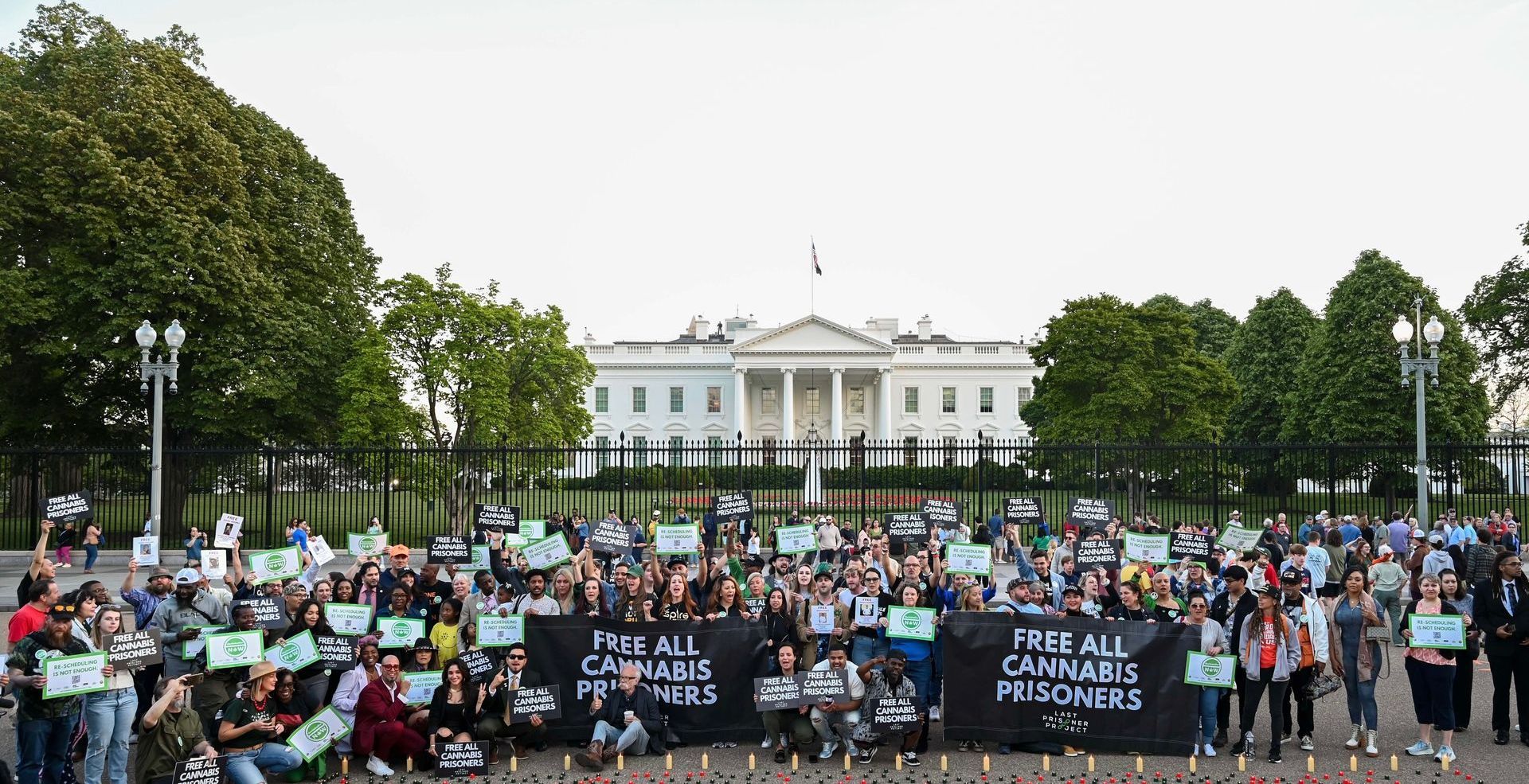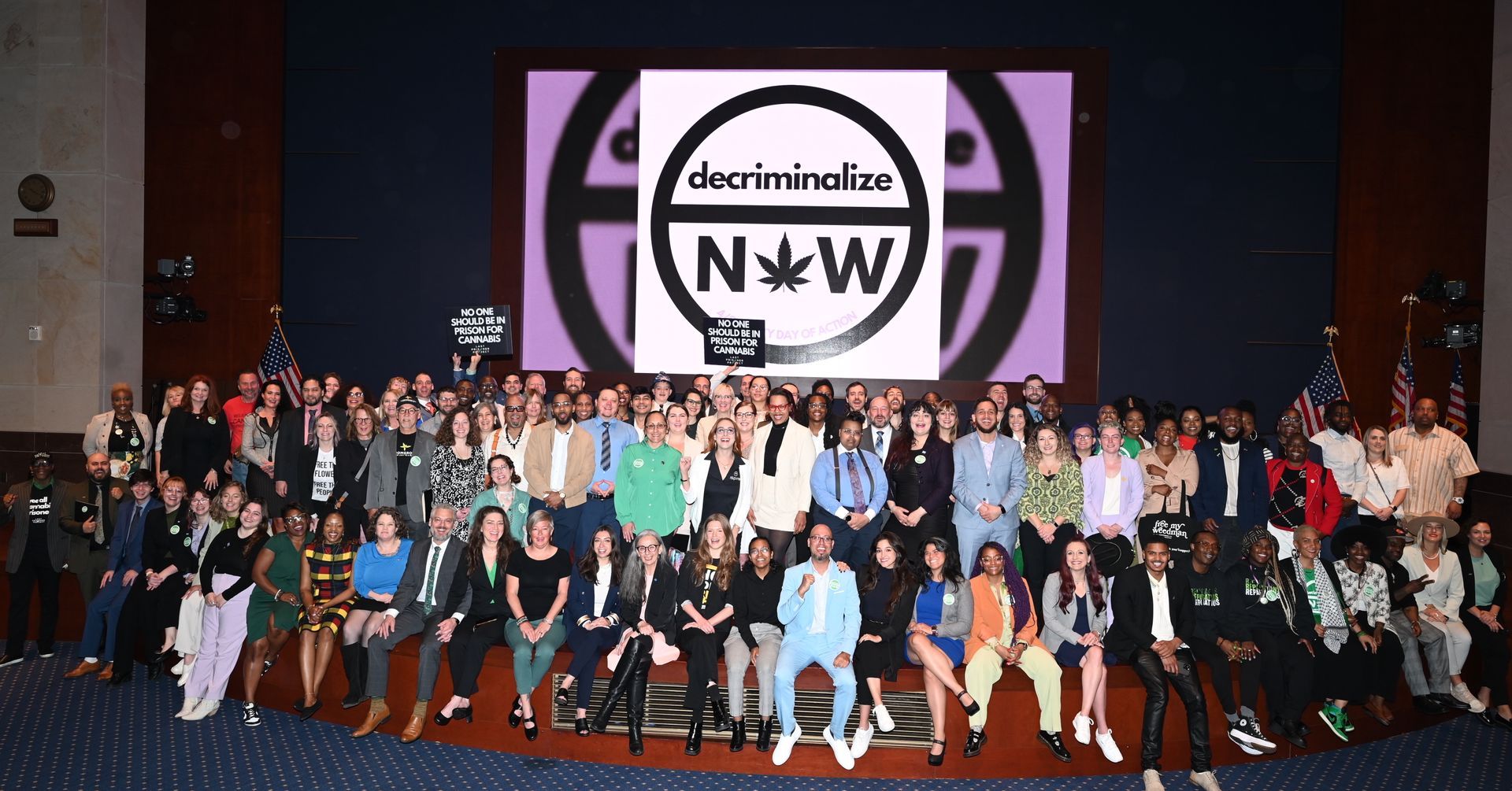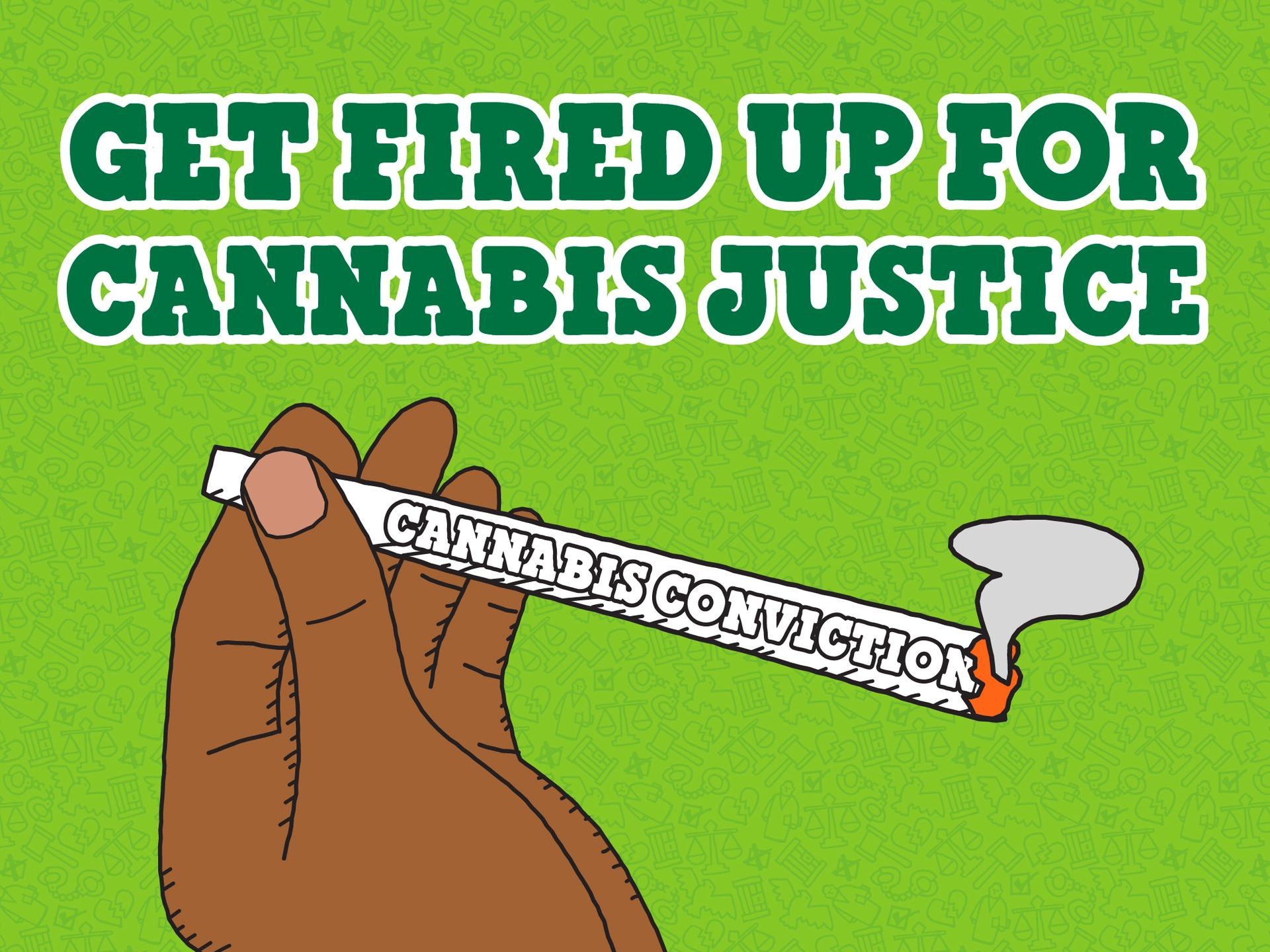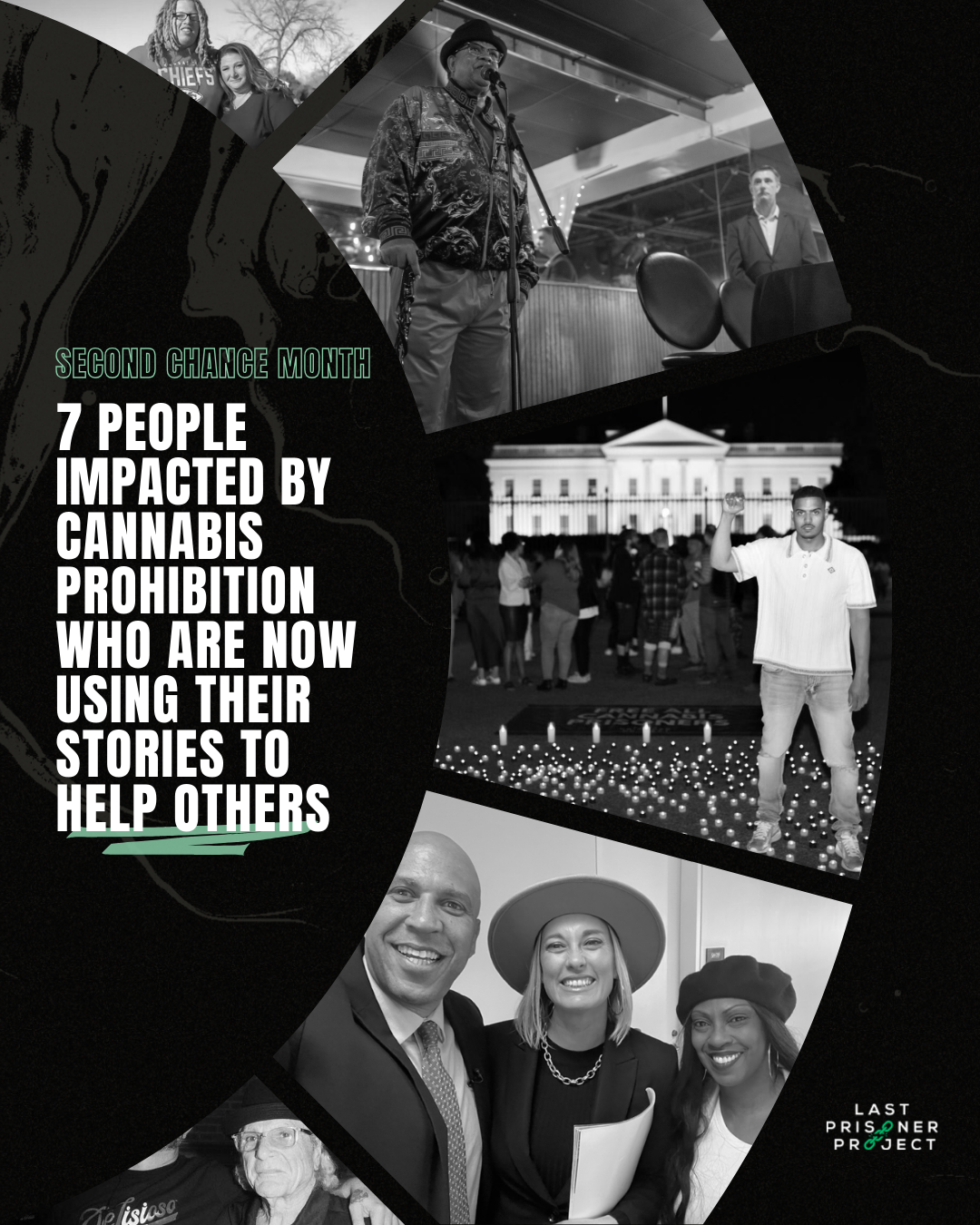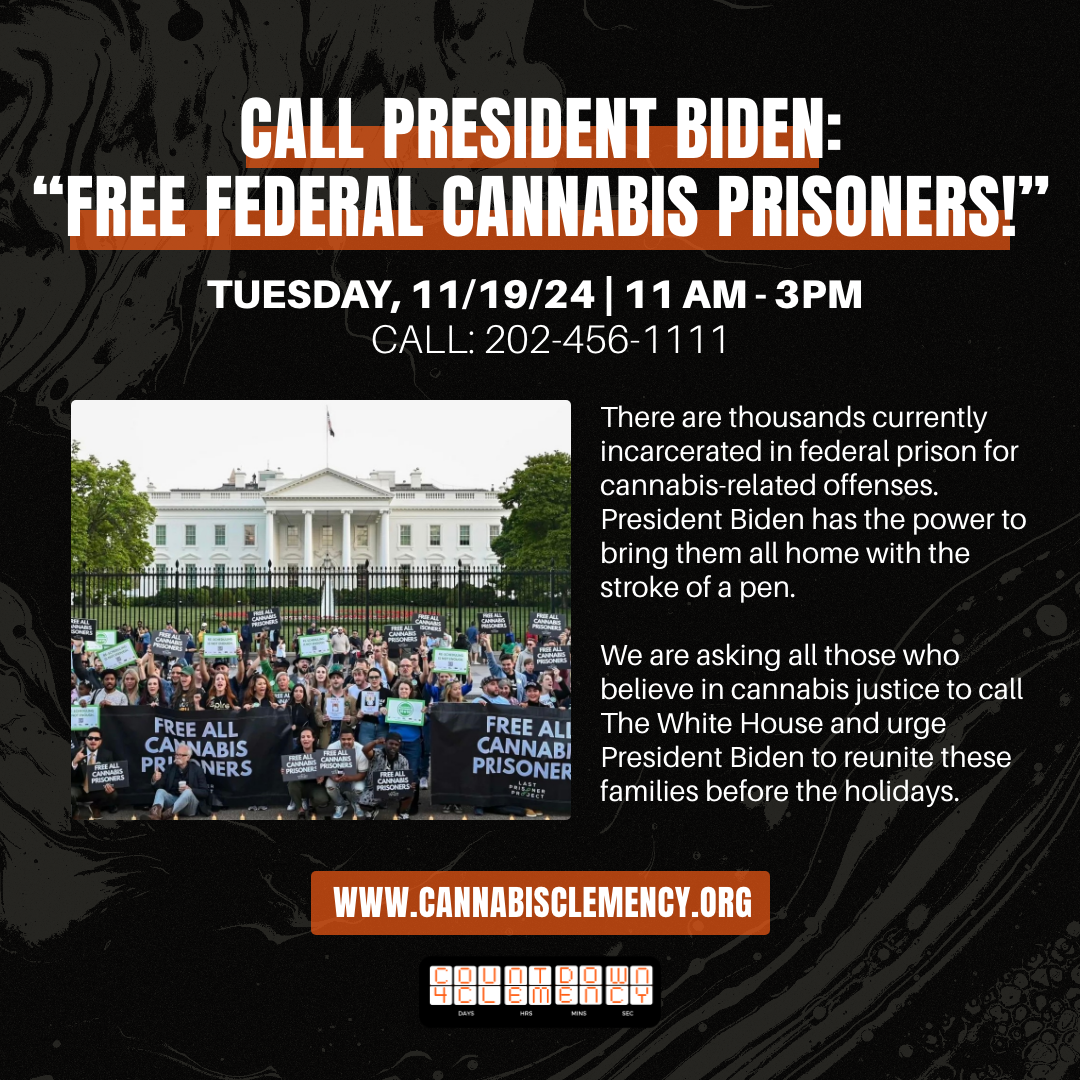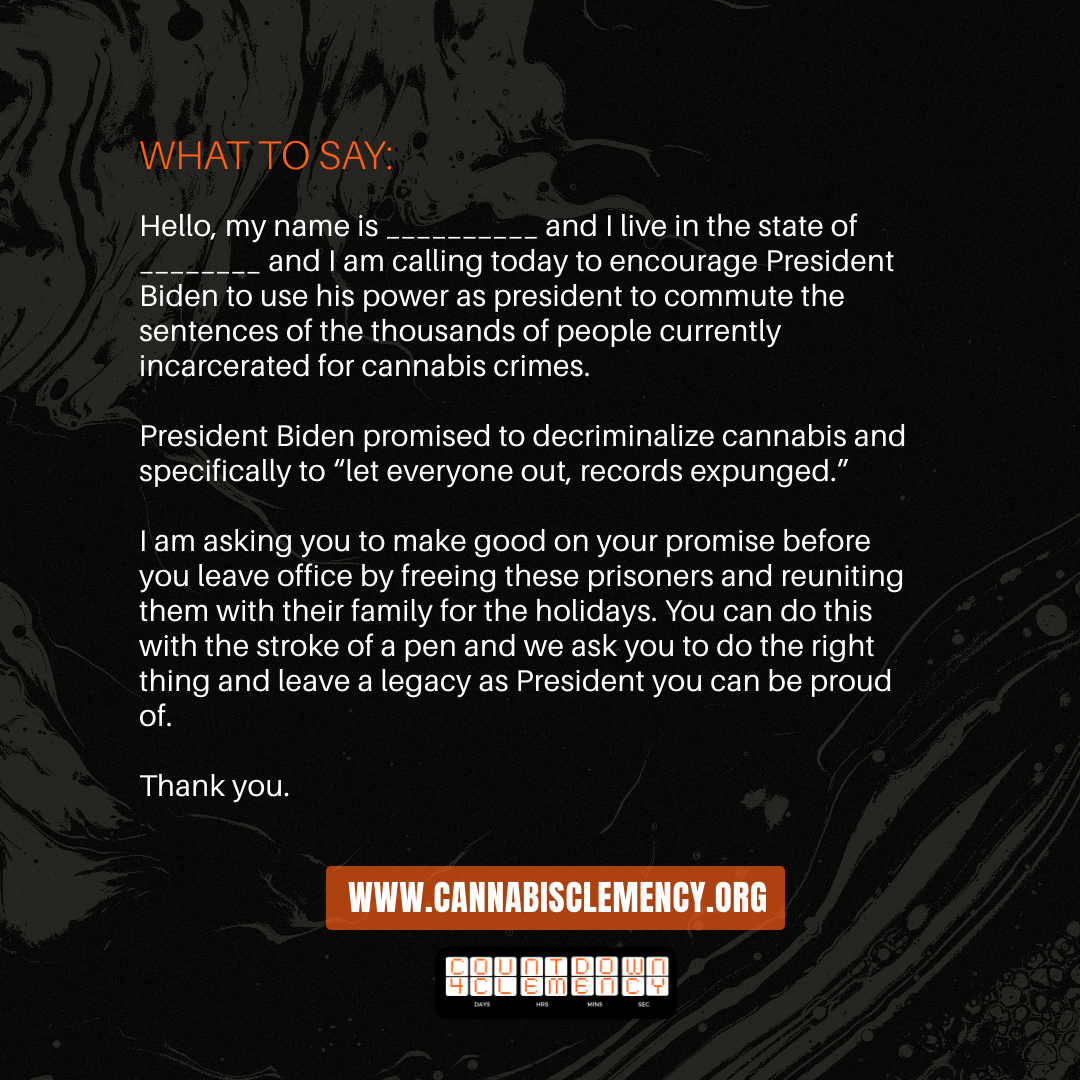Cannabis Clemency Advocates Build Pressure Ahead of President Biden's Turkey Pardons as Clock Ticks on His Chance to Right History
Washington D.C., Nov. 13th — As Thanksgiving approaches, Last Prisoner Project (LPP) calls on President Biden to fulfill his promise that “no one should be in jail for marijuana” by granting clemency to individuals still incarcerated for nonviolent cannabis offenses. With two months remaining in the #Countdown4Clemency, and an impending change in administration, the urgency for him to take action before the end of his term is greater than ever.
Biden has yet to release a single person still incarcerated for cannabis through commutation. While his categorical pardons have provided record relief to thousands of people with cannabis possession convictions, this move alone doesn’t address the estimated 3,000 people still serving time in federal prisons for cannabis offenses.
Ahead of the annual presidential tradition of pardoning turkeys, we are asking President Biden to #PardonPeopleNotPoultry and end the continued incarceration of thousands for cannabis-related offenses that are now legal in many states. Biden has the power to end this hypocrisy now, and the public overwhelmingly supports him doing so.
A YouGov poll released in August showed President Biden's cannabis pardons was one of the most popular policies of his entire administration. Meanwhile, polls show that 84% of registered voters favor releasing people still in prison when their covictions are no longer considered crimes, like cannabis-related offenses.
At the state-level, Kansas Governor Laura Kelly was the first to kick off the holiday clemency season granting clemency last week to LPP constituent Deshaun T. Durham, a 24-year-old who was sentenced to 92 months for a first-time cannabis offense, setting a powerful precedent for others to follow. Other recent actions by state leaders like Massachusetts Governor Maura Healey and Maryland Governor Wes Moore, who used LPP’s #PenToRightHistory to pardon over 175,000 individuals for cannabis-related charges, highlight the growing momentum for cannabis clemency.
Yet, for other Marylanders like Jonathan Wall, who is incarcerated on an 8-year federal cannabis charge, can only get that type of clemency relief from the president. Governors have begun to answer President Biden’s call by turning state pardons to progress, but time is running out for President Biden to use his clemency powers to correct the injustices inflicted by the War on Drugs.
Among those still behind bars is Ricardo Ashmeade, who is serving a 22-year sentence due to the three-strikes law championed by then-Senator Biden. His daughter, Richeda Ashmeade, has been separated from her father for 16 years. In addition to Ricardo, individuals like Edwin Rubis, who is serving a 40-year sentence for a cannabis-related offense, and David Lopez, who has faced years behind bars for court errors on his cannabis charges, exemplify the urgent need for clemency.
Alongside our
420 Unity Coalition partners, we are holding a press conference in Washington D.C. next week to encourage people to call President Biden to urge him to reunite these families before the holidays and send letters to the White House to grant cannabis clemency before the end of his term.
To join the fight for cannabis justice, visit www.cannabisclemency.org, and use the hashtags #Countdown4Clemency and #CannabisClemency on social media to amplify the message.
About Last Prisoner Project
The Last Prisoner Project is dedicated to freeing those incarcerated due to the War on Drugs, reuniting their families, and helping them rebuild their lives. As laws change, individuals continue to suffer from injustices rooted in outdated cannabis laws. LPP works to repair these harms through legal intervention, advocacy, and policy change.
For more information, visit www.lastprisonerproject.org.
For more information on our efforts to #PardonPeopleNotPoultry, watch this video and visit peoplenotpoultry.com. Then use this social media tool kit to amplify the campaign!
For more information on the power of the #PenToRightHistory, watch this video and visit pen.lastprisonerproject.org.
